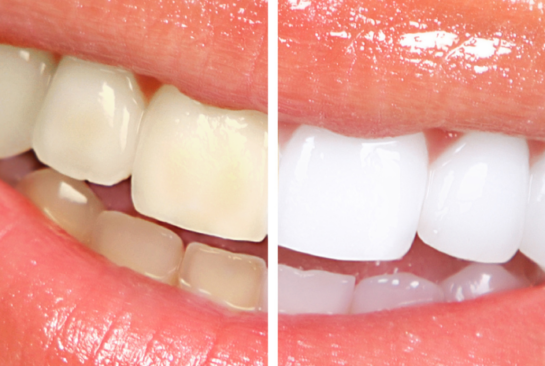- SHOWCASE

The Perks of Dental Hygienist Visits
Regular dental appointments are key to good oral health and to maintaining a smile to be proud of. Your dentist can spot oral health problems earlier when they are easier to treat.
Having your teeth professionally cleaned is another important element of a good dental care regime. Removing the plaque and tartar that can build up on teeth helps prevent gum disease and tooth decay. Such preventative measures are why a dental hygienist plays an important role in many dental surgeries.
What Is the Role of a Dental Hygienist?
A dental hygienist’s primary role is preventative dentistry. They are specially trained to perform procedures aimed at preventing dental problems such as gum disease, as well as to offer advice on how best to look after your teeth and gums.
As well as preventing dental problems, a dental hygienist may also prepare your teeth for any restorative work. For example, you may need to visit the hygienist to ensure your teeth and gums are in the best possible condition before having a crown fitted.
Scale and Polish
Professional teeth cleaning is often referred to as a ‘scale and polish’ — and is one of the main dental hygienist treatment offerings provided by a dental practice. Plaque hardens on teeth to form tartar which needs to be removed professionally. Left untreated, tartar can lead to cavities, staining of the teeth, and gum disease.
A hygienist will remove plaque and tartar from your teeth during a professional cleaning. They will carefully scrape the plaque and tartar off your teeth, including areas that are difficult to reach with your toothbrush. The teeth are then polished to help restore a brighter smile.
A scale and polish tend to be pain-free. However, if you experience any pain or discomfort you should inform the hygienist. They may use an anaesthetic cream or possibly suggest a local anaesthetic if necessary.
Professional Advice
Another key service offered by a hygienist is advice on how to keep your teeth and gums clean to reduce the risk of oral health issues. This is a major element of their preventative role.
Regular appointments with your dentist go hand in hand with maintaining a good oral care routine at home. A dental hygienist can advise you on how often to brush your teeth and the best practices when brushing. They can also discuss flossing and which toothbrush, toothpaste and mouthwash would be best suited for you.
A dental hygienist can also offer tips on your diet, as the food and drink you consume can have a bearing on the condition of your teeth and gums.
Food items that are high in sugar can increase your risk of tooth decay, as can sodas with a high sugar count. Discussing your diet and making recommendations about the changes you can make for a healthier diet, is another example of the preventative role of a hygienist.
The same goes for bad habits such as smoking. Studies indicate that smokers are at greater risk of gum disease and tooth decay compared to non-smokers. They can also see their teeth become stained. A hygienist can offer advice on quitting smoking, a plus for your overall health as well as your oral health.
Can They Perform Any Other Procedures?
While a dental hygienist’s primary role is preventative, they are also trained to carry out a few further dental procedures. These include:
- Taking x-rays to aid a dentist in evaluating a patient’s teeth and gums
- Applying fluoride varnishes or fluoride treatments to help prevent tooth decay
- Placing fissure sealants to fill fissures in teeth and protect them against bacteria and plaque
- Tooth whitening prescribed by a dentist
A dental therapist is another specialised dental professional who is trained to carry out all the roles of a dental hygienist plus a few more dental procedures.
A dental therapist can perform fillings, although not other restorative work such as crowns. They can remove baby teeth for your little ones, as well as place a pre-formed crown on baby teeth.
How Do I Book an Appointment?
Many dental practices have a hygienist who you can be referred to by your dentist. This could be as part of a treatment plan or as a singular appointment for a professional cleaning and advice on preventative measures.
If your dental practice does not have a hygienist, your dentist may refer you to one or you could look for an independent hygienist who you can contact yourself.
Prices will vary between practices and will also depend on the extent of the work required. You should always enquire about the costs in advance and ask for a written quote before committing to any dental hygienist treatment.
Will My Child Benefit From an Appointment?
Dental hygienist treatment is not exclusive to adults. Children may benefit from a visit, where a clean and polish could help enhance their smile further.
A hygienist can also help reduce your child’s risk of tooth decay by applying a fluoride varnish. The varnish is applied to the teeth, where it hardens to help strengthen the tooth enamel and add extra protection against the bacteria that causes tooth decay.
When their adult back teeth come through, a hygienist can also apply a sealant on the biting surfaces if they contain large hollows or pits. This involves a special plastic coating applied to the molars and pre-molars just after they emerge. The sealant prevents bacteria from building up within the grooves of the teeth which otherwise could increase the risk of cavities and tooth decay.
Having your teeth cleaned regularly by a dental hygienist helps prevent tooth decay and gum disease. By removing the build-up of plaque and tartar, a professional cleaning can brighten your smile and boost confidence in your appearance. The advice provided will also help you get the best out of your oral care routine at home.







